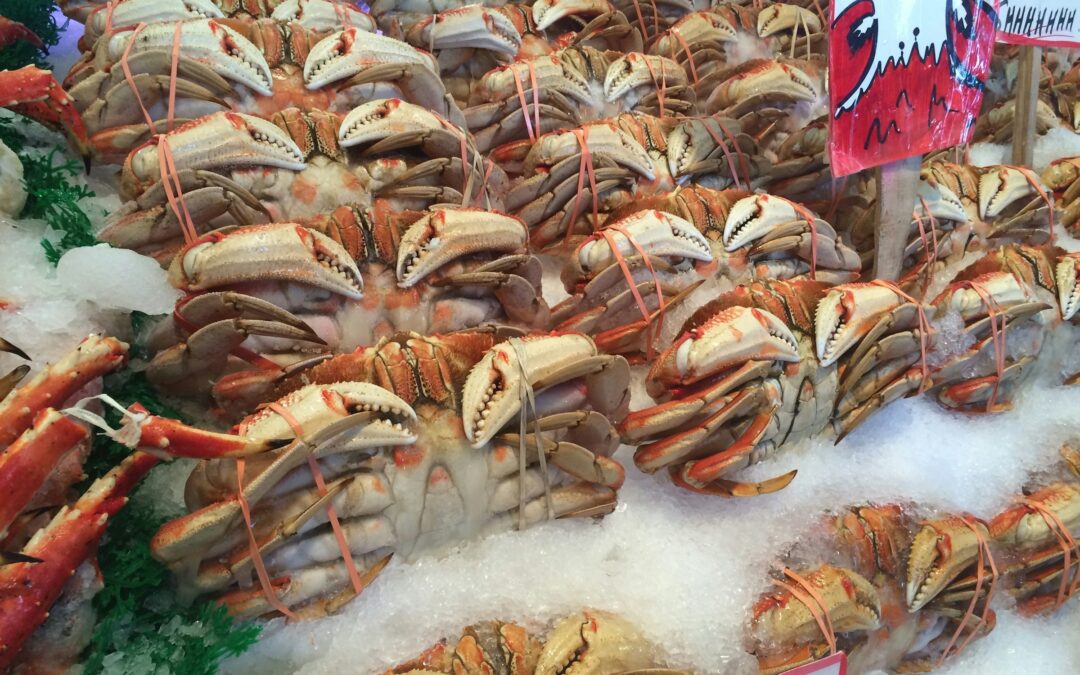Dreaming of a life at sea, hauling in baskets brimming with succulent crab? The world of commercial crab fishing might seem daunting, but entry-level opportunities exist for those willing to work hard and learn. This comprehensive guide dives deep into the realities of finding and succeeding in entry-level crab fishing jobs, providing you with the knowledge and insights you need to embark on your maritime career.
Understanding the Crab Fishing Industry
Before you cast your line, understanding the crab fishing industry is crucial. It’s a physically demanding profession with long hours, unpredictable weather, and potential dangers. Success hinges on teamwork, resilience, and a genuine passion for the work. Different regions specialize in different crab species—Dungeness crab on the West Coast, snow crab in Alaska, and blue crab in the Chesapeake Bay, for example—each with its own unique fishing seasons and regulations.
The industry employs a wide range of roles, from deckhands to processors, offering varying levels of experience and skill required. Entry-level positions typically involve physically demanding tasks like baiting traps, sorting catches, and maintaining the vessel. These foundational roles provide invaluable experience and pave the way for advancement within the industry.
Finding Entry-Level Crab Fishing Jobs
Securing your first crab fishing job requires a proactive and strategic approach. Networking is key; attending industry events, connecting with experienced fishermen, and joining relevant online forums can open doors to previously unknown opportunities. Don’t underestimate the power of word-of-mouth; conversations with local seafood markets or even casual encounters at coastal communities can lead to unexpected leads.
Online job boards dedicated to maritime industries are invaluable resources. Websites specializing in fishing jobs often post entry-level positions, offering a direct route to potential employers. Always thoroughly research any company before applying, verifying their legitimacy and reputation within the industry. Prepare a concise and compelling resume highlighting relevant skills, even if seemingly unrelated, such as teamwork, physical stamina, and adaptability to challenging conditions.
Utilizing Online Resources Effectively
Many online platforms specialize in connecting maritime workers with employers. Familiarize yourself with sites like Indeed, LinkedIn, and specialized fishing job boards. Use relevant keywords in your job search, including terms like “deckhand,” “fisherman,” “crab fishing,” and the specific region you’re interested in. Craft a targeted cover letter for each application, demonstrating your understanding of the role and your enthusiasm for the industry.
Online forums and social media groups dedicated to fishing can provide valuable insider information, networking opportunities, and even direct job postings. Engage respectfully in these communities, demonstrating your genuine interest in the industry and your willingness to learn. Remember that building relationships within the industry is a long-term investment that can pay significant dividends.
Essential Skills and Qualifications
While formal qualifications might not always be required for entry-level positions, certain skills and attributes are highly valued. Physical fitness is paramount; crab fishing demands considerable strength, stamina, and endurance. Sea sickness can be a major hurdle, so assessing your susceptibility beforehand is crucial. A willingness to work long hours in challenging conditions is essential; expect periods of intense activity punctuated by moments of relative calm.
Teamwork and communication are equally critical. Crab fishing is a collaborative effort, requiring effective communication and a willingness to contribute to the team’s overall success. Basic navigational skills, knowledge of safety procedures, and familiarity with fishing equipment are also advantageous, although on-the-job training is often provided for these aspects.
Developing Crucial Skills Beforehand
Before applying, consider gaining relevant experience. Volunteer work on smaller fishing boats, even in unrelated capacities, can demonstrate your commitment and work ethic. Taking a first aid and CPR course will significantly boost your application. Consider gaining experience with basic boat maintenance or even taking a sailing course to improve your understanding of maritime environments.
Research the specific crab species and fishing techniques used in your target region. Demonstrating this knowledge in your application or during interviews showcases your dedication and preparedness. Familiarity with relevant safety regulations and environmental concerns is also important, indicating your responsibility and commitment to sustainable fishing practices.
The Realities of Entry-Level Crab Fishing Jobs
Expect long and irregular work hours, often exceeding 12 hours per day, particularly during peak fishing seasons. Weather conditions can be harsh and unpredictable, impacting work schedules and posing safety risks. Working conditions can be physically demanding and uncomfortable, with exposure to cold, wet, and sometimes dangerous environments. Living conditions aboard vessels can be cramped and basic, requiring adaptability and a degree of resilience.
The pay for entry-level positions may not be high initially, but it can increase with experience and skill. Many fishermen supplement their income during off-seasons with other jobs. Consider the overall lifestyle and potential career progression before committing to this challenging yet rewarding path. Remember that the rewards often go beyond financial compensation—the sense of accomplishment, the beauty of the ocean, and the camaraderie of fellow fishermen are significant intangible benefits.
Advancement Opportunities in Crab Fishing
Starting as a deckhand provides a solid foundation for career advancement within the crab fishing industry. With experience, you can progress to more skilled roles such as captain, engineer, or even pursue business ownership. Continuous learning and professional development are essential; staying updated on best practices, safety regulations, and fishing techniques enhances your value and opens up more opportunities.
Consider obtaining relevant certifications, such as those related to boat operation, safety, or fishing techniques. Networking with experienced fishermen and building strong relationships within the industry is critical. Actively seeking opportunities for skill development, such as participating in workshops or taking specialized training courses, will demonstrate your commitment to professional growth.
Conclusion: Cast Your Net and Reel in Success
Landing an entry-level crab fishing job requires dedication, hard work, and a resilient spirit. By leveraging online resources, developing essential skills, and understanding the realities of the industry, you can significantly improve your chances of success. Remember that this is a physically demanding and challenging profession, but the rewards – both financial and personal – can be substantial for those with the passion and determination to succeed.
Embrace the challenges, learn from experienced fishermen, and never stop honing your skills. With persistence and a proactive approach, you can embark on a fulfilling career in the exciting and rewarding world of crab fishing.

